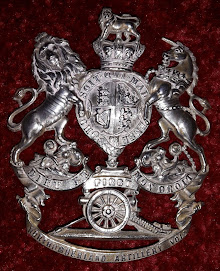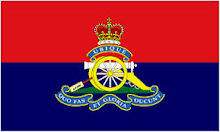‘In honour of the men of the New Zealand Division. The Battle of Messines 7th to 14th of June 1917′
The memorial It overlooks the battlefield on which the Kiwis fought and is inscribed with their exploits;
'The New Zealand Division on the 7th of June captured this ridge and advanced 2000 yards through Messines to their objective on the Eastern side‘.
 |
| New Zealand Division Memorial Messines |
On the outbreak of World War One, New Zealand formed an expeditionary force consisting of two brigades, the New Zealand Infantry Brigade and the New Zealand Mounted Rifles Brigade. The brigades became part of the New Zealand and Australian Division fighting in the Gallipoli Campaign from April 1915 to December 1915. Following their evacuation from Gallipoli the division withdrew to Egypt.
The New Zealand Division was formed Egypt in in March 1916 ,moving to France the following year. They fought in the later stages of the Battle of the Somme, their first major engagement being the Battle of Flers-Courcelette in September 1916.
The NZ Division was part of 2nd ANZAC Corps in the Battle of Messines. It was tasked with the capture of the village of Messines.
 |
| Messines - New Zealand Division objective |
The 2nd ANZAC Corps was on the right of Second Army's assault on the Messines Ridge with its axis on the village of Messines. To their left, in the centre IX Corps would attack Wytschaete and the left flank was allocated to X Corpswith an axis on an old Roman Road, the Dammstrasse.
The New Zealanders were at the centre of the three division assault, 25th Division left, 3rd Australian Division right, with the 4th Australian Division in reserve.
The NZ Division would attack uphill towards German fortified positions. Within the memorial gradens a panorama of the battlefield overlooks the ground over which the Kiwi's would attack. The remains of two German bunker show the defences they would need to overcome.
 |
| New Zealand Division Battlefield Panorama |
 |
| New Zealand Division Battlefield Panorama |
 |
German Bunkers
New Zealand Memorial
|
 |
| German Bunkers overlooking New Zealand Division Battlefield |
A preliminary bombardment lasting from 26th May to 6th June preceeded the assault. Royal Engineer Tunnelling Companies had placed 25 mines with 542,542 kg of explosives along the Messines Ridge to destroy German strongpoints at Zero Hour.
At 03:10 7th June 1917, nineteen of the mines detonated along the Messines Ridge destroying German defences, shocking and disorientating the defenders, inducing panic. A creeping barrage commenced and the infantry left their trenches.
 |
| Infantry Assault Messines Ridge |
Two brigades lead the attack with a pincer movement on Messines, the 3rd New Zealand Rifle Brigade right, the 2nd New Zealand Infantry Brigade right, with tanks in support. The 1st New Zealand Infantry Brigade was in reserve for the initial attack.
 |
| Battle of Messines 7th June 1917 New Zealand Division Assault |
The effect of the preliminary bombardment, the mines and the creeping barrage meant the leading troops quickly secured the forward German positions and advanced on Messines, fighting through the ruins clearing the village by 07:00.
 |
| New Zealand Division Messines |
 |
| Messines Village |
The 1st New Zealand Brigade leapfrogged the two assault brigades to exploit beyond Messines and consolidate on the ridge line. The Phase 1 objectives had been achieved.
 |
| 1st Otago Battalion after Battle of Messines |
 |
| Messines Kiwi Soldier Statue |
During the fighting Lance Corporal Samuel Frickleton won the Victoria Cross singlehandedly taking out two machine gun posts pinning down his section.
 |
| L/Cpl Samuel Frickleton VC |
In support of the New Zealand infantry were the Divisional Artillery, together with attached Army Artillery Brigades and Heavy Artillery Groups.
 |
| New Zealand Field Artillery on the move |
The Divisional Artillery consisted of the 1st and 3rd Brigades New Zealand Field Artillery, each Brigade consisting of three 18 pounder batteries and a 4.5inch howitzer battery.
------0------
 |
| New Zealand Division Memorial Messines |
The New Zealand Division Memorial at Messines is one of four obelisks instituted to remember the New Zeland soldiers who died on the Western Front. The others are located at Passchendaele, Le Quensoy and Longueval on the Somme. The memorials all bear the inscription "From the Uttermost Ends of the Earth"
The memorial was unveiled by King Albert I of Belgium on the 1st of August 1924.
 |
New Zealand Division Memorial Messines
Opening 1st August 1924
|



































